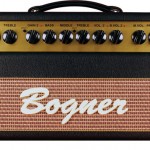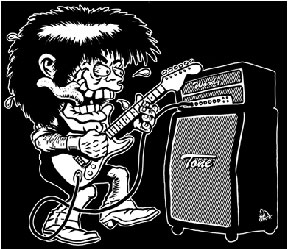Expert Says: Don’t Toss Marginal Tubes
Tubes = wood. Some brands of tubes may give you more wood than others. All tubes are not alike.
That’s why when buying tubes, you should know what you’re doing – or talk to/buy from someone who does.
As you might imagine – and probably already know – all tubes are not created equal, even those of the same brand made on the same day at the same factory (gotta love analog tech!). And when you’re talking matched pairs or quads, that’s an entirely ‘nother game.
But I’m not a tube expert. I wish I were, just like I wish I was able to take one look at the guts of an amp and have a pretty darn good idea of what it would sound like. But I’m not there yet.
So I’m always interested in things I can learn that make sense to me, and that move me down the line of understanding – which is why I filed away this bit of wisdom from the December ’09 issue of Vintage Guitar magazine.
Tube-tester expert Randy Jamz was interviewed in a multiple Q&A, but only one Q&A stuck with me, and it may help you too. Here it is:
VG: Is a tube that tests barely good as good as one that has plenty of life left in it, tone-wise?
RJ: “I believe so. Some circuits, like a cathode-follower in your Marshall, have no gain anyway. So as long as the tube can pass an AC signal, it would work. And keep in mind you have many gain stages in your amplifier that easily make up for one single stage having less gain due to a weak tube. That tube could test weak [and] still be non-microphonic and sound great in your amplifier. It just may not last as long before it goes flat. I keep those tubes around as emergency spares. Unless it’s shorted, I never throw a tube away.”
This helps me because when I’ve bought tubes on eBay, I’ve never been sure what the numbers really meant. I’d always assumed that a tube that tested higher above the minimum was better than one that tested lower, but I didn’t know why. Would it last longer? Presumably. Would it sound better? I also presumed this, but it turns out that’s not the case…
…maybe. Again, I’m no tube expert, but will be asking tube experts this question. Because I’m betting that just like some tone-meisters can tell the difference between pickups, speakers and even stronger vs. weaker 9-volt batteries in their effects, some can also tell when a tube is weak. Can you?
Category: Tubes














